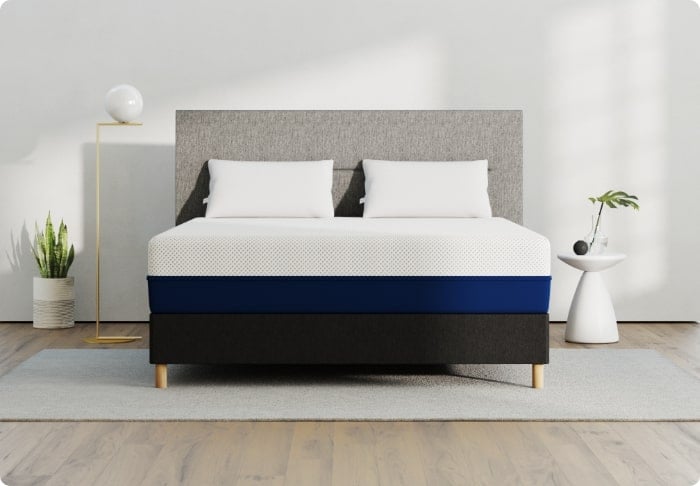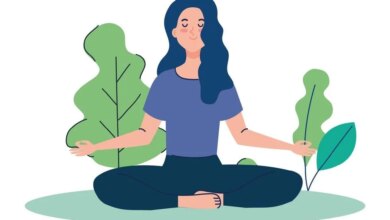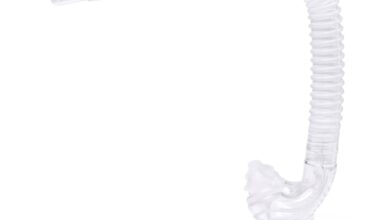Can Lack of Sleep Cause Hair Loss? Science-Backed Solutions (2025)

Quick answer: Yes, chronic sleep deprivation can cause hair loss. Poor sleep raises cortisol levels, disrupts growth hormones, and pushes hair follicles into the resting phase prematurely, leading to excessive shedding 2-3 months later. Most sleep-related hair loss reverses once you consistently get 7-9 hours nightly.
Powered by Amerisleep, EarlyBird brings together a dedicated team of sleep science coaches, engineers, and product evaluators. We meticulously examine Amerisleep’s family of products using our unique product methodology in Amerisleep’s state-of-the-art laboratory. Our commitment to sustainability is reflected in our use of eco-friendly foam in our products. Each article we publish is accurate, supported by credible sources, and regularly updated to incorporate the latest scientific literature and expert insights. Trust our top mattress selections, for your personal sleep needs.
Key Takeaways
- Sleep deprivation triggers excessive shedding – Chronic poor sleep pushes more hair follicles into the resting phase simultaneously, causing noticeable hair loss 2-3 months later when those hairs fall out together.
- Cortisol is the main culprit – Sleep loss elevates stress hormones that force follicles to stop growing prematurely, reduce protective scalp oils, and make hair strands more brittle and prone to breakage.
- Deep sleep repairs and regrows hair – Your body releases growth hormones, produces hair-building proteins, and improves scalp circulation during deep sleep phases, making consistent 7-9 hour nights essential for healthy hair.
- Recovery takes time but works – Most sleep-related hair loss reverses within 3-6 months once you establish consistent sleep patterns, though you won’t see changes immediately due to the hair growth cycle.
- Track your progress to stay motivated – Count hairs weekly, take monthly photos in consistent lighting, and journal your sleep quality to identify which improvements benefit your hair most.
- Quick links: Best mattresses for better sleep. Sleep position guide. Stress management techniques.
We all know a bad night’s sleep leaves us dragging through the day with puffy eyes and a foggy brain. But the effects of poor sleep go beyond just feeling tired – they might actually show up on your head.
Your hair, those thousands of strands you style each morning, depends heavily on what happens while you’re sound asleep. During sleep, your body works on vital repair tasks, including nourishing and growing your hair follicles.
Missing sleep isn’t just about feeling grumpy; it disrupts this repair cycle and can leave your hair looking dull, weak, or worse. It might even fall out more than usual.
While shedding 50-100 hairs daily is perfectly normal, chronic sleep deprivation can push this number higher as your body signals distress.
The surprising connection between your pillow time and your hairline is worth understanding if you want to maintain a healthy head of hair.
Ready to save your strands? Keep reading to discover how better sleep might be your most powerful (and overlooked) hair care secret.
Understanding the Normal Hair Growth Cycle
- Your hair cycles through three phases over 2-7 years, with 85-90% actively growing while the rest naturally shed.
Your hair isn’t just sitting idle while you sleep – it’s going through important growth and repair processes that keep it healthy and strong. Understanding this connection helps explain why those late nights might be affecting your hairline more than you realize.
Your hair follows a predictable cycle with three distinct phases that determine when it grows and when it falls out.
- Growing Phase: During the anagen phase, your hair actively grows for 2-7 years, building the length and thickness you see every day.
- Transition Phase: In the catagen phase, growth slows for about 2 weeks as your follicle prepares to take a break.
- Resting Phase: During the telogen phase, your hair stops growing for 1-3 months before naturally falling out to make room for new growth.
Most of your hairs (about 85 to 90%)
are growing
at any given time, while the rest take their scheduled breaks – this rotation keeps your hair looking full while allowing for natural renewal.
How Sleep Helps Your Body Repair and Grow Hair
Sleep transforms your body into a powerful hair repair shop that works while you’re not even aware.
- Growth Hormones: Your body releases special hormones during deep sleep that build the proteins your hair needs to grow strong and healthy.
- Blood Circulation: Sleep improves blood flow to your scalp, delivering vital nutrients and oxygen that feed your hair follicles.
- Hormone Balance: Your sleeping hours help regulate important hormones that control your hair’s thickness, growth rate, and overall health.
Think of sleep as your personal hair care specialist working the night shift – when you cut these hours short, you’re essentially laying off your most dedicated hair maintenance crew.
What Happens to Your Hair When You Don’t Get Enough Rest
Sleep deprivation forces your body to make tough choices about where to direct its limited resources, and unfortunately, your hair often gets the short end of the deal. Without adequate sleep, your stress hormones rise and stay elevated, which can trigger a condition called telogen effluvium.
This pushes too many of your hairs into the resting phase at once, disrupting the normal balance of your hair cycle. Your body prioritizes essential functions over hair growth when stressed, which means nutrients and energy get diverted away from your follicles.
You won’t notice problems immediately, but weeks later, you might see more hair in your brush or shower drain as those hairs complete their resting phase and fall out together.
This type of hair loss typically resolves once your sleep and stress levels return to normal, but can be alarming when you first notice the increased shedding.
How Poor Sleep Damages Your Hair
- Sleep deprivation elevates cortisol, reduces protein production, disrupts growth hormones, and weakens your scalp’s immune defenses.
When you toss and turn instead of getting solid sleep, your hair suffers in ways you might not realize. Your body’s natural hair maintenance systems begin to break down, creating a perfect storm of conditions that can lead to more hair in your brush and less on your head.
Stress Hormone Overload: When Cortisol Attacks Your Hair Follicles
Sleep deprivation triggers your body to pump out more cortisol, the stress hormone that can wreak havoc on your hair health.
- Growth Shutdown: High cortisol levels force your hair follicles to quit growing prematurely and enter the resting phase too early.
- Oil Reduction: Your scalp produces fewer natural oils when cortisol levels stay high, leaving your hair dry and unprotected.
- Increased Breakage: The stress hormone makes your hair strands more brittle, so they snap off before reaching their full length potential.
Your body treats each sleepless night as a stress emergency, diverting resources away from “non-essential” functions like hair growth and toward survival needs instead.
Missing Out on Nighttime Cell Repair and Regeneration
Sleep serves as your body’s dedicated maintenance time, when it fixes damaged cells and builds new ones to keep your hair healthy.
- Cell Renewal: Your body creates fresh cells during deep sleep to replace damaged ones in your scalp and hair follicles.
- Protein Production: While you sleep, your body manufactures the proteins that form the building blocks of strong, resilient hair.
- Damage Defense: Sleep activates your body’s natural protection system against free radicals that can damage hair follicles at the cellular level.
When you cut sleep short, your body falls behind on this essential maintenance work, like skipping oil changes in your car – the problems won’t show up immediately, but they’re guaranteed to appear over time.
Which Hormones Control Hair Growth and How Does Sleep Affect Them?
Your sleep habits directly affect hormones that control every aspect of hair growth, from its speed to its thickness.
- Melatonin Matters: This sleep hormone does double duty by protecting your hair follicles from damage and helping regulate your hair’s growth cycle.
- Hormone Balance: Sleep disruption throws off estrogen and testosterone levels, which directly impacts how thick and strong your hair grows.
- Nutrient Delivery: Poor sleep interferes with insulin function, which means fewer nutrients reach your hair follicles even if you’re eating right.
These hormone imbalances don’t just make you feel off – they show up on your head in the form of thinner, slower-growing hair that loses its natural shine and bounce.
Weakened Immunity and Its Effect on Your Scalp
Sleep powers up your immune system, which plays a surprisingly important role in maintaining a healthy scalp environment.
- Infection Fighting: Well-rested
immune systems
quickly tackle
fungal
and bacterial invaders that can inflame your scalp and damage hair follicles. - Dandruff Control: Sleep
strengthens
your skin barrier function, helping prevent the overgrowth of yeast that causes flaking and itching. - Autoimmune Protection: Regular sleep helps keep your immune system from mistakenly
attacking
your own hair follicles, which happens in conditions
like
alopecia areata.
Your scalp needs a functioning immune system to maintain the perfect growing environment for hair. Without it, even minor issues can escalate into conditions that directly impact hair growth and retention.
The Warning Signals You Should Not Ignore
- Watch for more than 100 hairs daily in your brush or drain, dull or brittle texture, slower growth, and related symptoms like dark under-eye circles.
Your hair sends clear distress signals that something is taking a toll on it. Knowing these warning signs helps you connect the dots between your late nights and your hair troubles before the damage becomes more difficult to reverse.
Noticing More Hair in Your Brush or Shower Drain
Excessive hair shedding often serves as the first red flag that problems might be affecting your hair health.
- Pillow Evidence: Finding multiple strands on your pillow each morning suggests your hair is entering the shedding phase too quickly due to sleep-related stress.
- Brush Buildup: Your hairbrush collects more hair than usual when sleep deprivation pushes too many follicles into the resting phase simultaneously.
- Drain Clogs: Shower drains that clog frequently with hair might indicate that you’re losing more than the normal 50-100 strands per day.
While some daily hair loss is completely normal, a sudden increase often signals that something has disrupted your hair’s growth cycle – and poor sleep is a common culprit.
Changes in Hair Texture and Appearance
Sleep-deprived hair develops visible changes in how it looks and feels, often before you notice increased shedding.
- Shine Loss: Your hair loses its natural luster and appears dull when your body can’t produce enough scalp oils during insufficient sleep.
- Snap Factor: Strands become more brittle and break easily when sleep deprivation reduces protein production needed for hair strength.
- Volume Deflation: Your hair looks flatter and lacks its usual bounce when sleep problems affect the overall health of hair follicles.
These texture changes happen because quality sleep powers your body’s production of oils, proteins, and nutrients that give hair its healthy appearance – when sleep suffers, these processes slow down dramatically.
Slower Hair Growth Than Usual
Hair growth slows noticeably when sleep deprivation diverts resources away from non-essential functions like creating new hair length. During normal conditions, your hair grows about half an inch each month in a steady, predictable pattern.
Poor sleep disrupts this growth rate by affecting the hormones that regulate your hair’s growing phase. When you’re consistently sleep-deprived, hair follicles spend less time actively growing and more time resting, which means your hair takes longer to reach your desired length.
This slower growth isn’t usually obvious day-to-day, but becomes noticeable over several weeks. You might realize your regular haircut schedule no longer matches your growth rate, or that your hair isn’t keeping pace with how quickly it used to grow.
Tracking your hair’s growth by marking its length can help you spot this subtle but important warning sign.
Other Physical Symptoms That Connect Sleep and Hair Problems
Your body shows several related symptoms when both sleep and hair health are suffering from the same underlying issues.
- Eye Circles: The dark circles appearing under your eyes indicate poor circulation that also affects blood flow to your scalp, starving hair follicles of nutrients.
- Skin Pallor: Pale skin
suggests
your blood isn’t carrying enough oxygen to your tissues, including the cells responsible for hair growth. - Healing Delays: Cuts, scrapes and
wounds
that heal slowly reflect the same cellular repair deficiencies that prevent proper hair follicle maintenance.
These seemingly unrelated symptoms actually share common causes with hair problems. They’re different ways your body signals that
sleep deprivation
is
affecting
your overall health from head to toe.
Improving Sleep to Save Your Hair
- Create a cool (65-68°F), dark bedroom, maintain consistent 7-9 hour sleep schedules, eat protein and iron-rich foods, and practice stress-reduction techniques.
You can reverse sleep-related hair damage by making strategic changes to how and when you sleep. These practical adjustments help restore your body’s natural ability to maintain healthy hair growth cycles.
Creating the Ideal Bedroom Environment for Restorative Sleep
Your bedroom setup directly impacts how deeply you sleep and how effectively your body repairs hair during rest.
- Temperature Control: Keeping your bedroom between 65-68°F helps your body maintain the cooler core temperature needed for deep, hair-repairing sleep phases.
- Darkness Matters: Using blackout curtains blocks all light signals that can disrupt your sleep hormone production and interfere with overnight hair repair processes.
- Sound Strategy: Eliminating noise disturbances with earplugs or masking sounds with background noise helps prevent sleep interruptions that cut short hair regeneration time.
Transforming your bedroom into a sleep sanctuary directly boosts your body’s ability to enter the deep sleep phases where most hair repair and growth support happens each night.
Developing a Consistent Sleep Schedule That Works
Your hair growth cycles thrive on predictable sleep patterns that stabilize your body’s internal clock.
- Time Consistency: Going to bed and waking up at the same times every day—even on weekends—helps regulate the hormone cycles that control hair growth.
- Duration Focus: Aiming for 7-9 hours of sleep nightly gives your body enough time to complete all hair repair processes and hormone rebalancing.
- Ritual Benefits: Establishing a calming pre-sleep routine signals your body to begin producing the sleep hormones that also support hair health.
Following a regular sleep schedule works like setting up automatic maintenance for your hair—your body knows exactly when to start and stop important hair-supporting processes each day.
Foods and Nutrients That Support Both Sleep and Hair Health
What you eat affects both how well you sleep and how effectively your body builds hair.
- Protein Power: Eating turkey, eggs, and milk provides tryptophan that your body converts to sleep-inducing serotonin while also supplying the protein building blocks for strong hair.
- Green Benefits: Including spinach and other leafy greens delivers iron and folate that support oxygen delivery to hair follicles and help you sleep more soundly.
- Healthy Fats: Consuming salmon, walnuts, and other omega-3 sources helps reduce inflammation that can damage hair follicles while supporting brain functions that regulate sleep.
Timing a nutrient-rich dinner about three hours before bed gives your body the raw materials it needs for overnight hair repair without digestive discomfort that might disrupt your sleep.
Stress Management Techniques for Better Sleep and Stronger Hair
Lowering your stress levels breaks the cycle of cortisol damage that harms both sleep quality and hair health.
- Breath Control: Practicing just five minutes of deep, slow breathing before bed lowers stress hormone levels that can push hair follicles into the resting phase too early.
- Gentle Movement: Doing evening gentle stretches helps release physical tension that can block both restful sleep and healthy scalp circulation.
- Mind Clearing: Writing worries in a journal before bed prevents racing thoughts from keeping you awake and driving up the cortisol levels that damage hair.
These stress-reduction techniques create a double benefit—they help you fall asleep faster and stay asleep longer while simultaneously reducing the stress hormones that directly damage your hair follicles.
When to Seek Professional Help
While improving sleep often helps hair health, sometimes you need expert guidance to address underlying issues. Recognizing when to consult a professional ensures you get proper treatment for persistent hair problems.
Recognizing When Hair Loss Might Have Other Causes
Sleep isn’t always the only factor affecting your hair health, and sometimes other conditions require specific treatment.
- Genetic Factors: Family patterns of hair loss often override sleep improvements, especially if close relatives experienced similar thinning at your age.
- Hormone Shifts: Major body changes like pregnancy, menopause, or thyroid imbalances can trigger hair loss that needs medical management beyond better sleep.
- Medication Effects: Certain drugs for high blood pressure, depression, or cancer treatments can cause hair loss as a side effect that won’t resolve with sleep alone.
If you’ve improved your sleep consistently for three months without seeing positive changes in your hair, it’s time to investigate other potential causes with a healthcare provider.
Types of Doctors and Specialists Who Can Help
Different experts offer specialized approaches to diagnosing and treating the root causes of hair problems.
- Starting Point: Your primary care doctor serves as the best first stop, conducting initial tests and referring you to specialists when needed.
- Skin Experts: Dermatologists with hair loss training can identify specific conditions like alopecia, scalp infections, or inflammation that affect hair growth.
- Sleep Assessment: Sleep specialists can diagnose disorders like sleep apnea or chronic insomnia that might be undermining your hair health despite your best efforts.
Finding the right specialist ensures you get targeted treatment that addresses the specific factors affecting your hair rather than just generic advice.
Treatment Options That Address Both Sleep and Hair Concerns
Medical professionals can recommend integrated approaches that tackle both your sleep issues and hair problems simultaneously.
- Root Cause Testing: Sleep studies and blood tests help identify hidden problems like sleep-disrupting breathing issues or iron deficiencies that affect both rest quality and hair growth.
- Dual Treatments: Short-term sleep medications combined with topical hair treatments can jump-start recovery while your body reestablishes healthy patterns.
- Comprehensive Programs: Medically supervised stress reduction programs address the underlying tension that often disrupts both sleep and hair growth cycles.
Professional treatment creates a faster, more direct path to hair recovery than trial-and-error approaches, especially when multiple factors are contributing to your hair problems.
Sleep-Friendly Hair Care Routines
- Detangle gently before bed, use silk pillowcases to reduce friction, and avoid harsh morning heat styling.
What you do with your hair before bed and how you treat it overnight dramatically affects its health and appearance. These specialized nighttime routines help protect your hair while you sleep, maximizing both rest quality and hair benefits.
Preparing Your Hair for Bed
The right pre-sleep hair routine prevents damage and breakage that commonly occurs during sleep movement.
- Gentle Detangling: Using a wide-tooth comb before sleep removes knots that could worsen overnight and breaks fewer strands than morning brushing when hair is tangled.
- Moisture Lock: Applying a small amount of lightweight oil or leave-in conditioner to hair ends before sleep prevents the dryness and friction damage that happens during hours of contact with pillows.
- Loose Styling: Wearing long hair to sleep in a very loose, high ponytail or braid keeps it contained without creating tension that stresses follicles during sleep.
These simple evening steps take just minutes but significantly reduce the damage that typically occurs during the 7-9 hours your hair spends pressed against bedding each night.
Fabric Choices That Protect Hair
The materials that touch your hair during sleep can either damage or protect it, making bedding choices surprisingly important for hair health.
- Silk Benefits: Using a silk or satin pillowcase dramatically reduces friction that causes breakage, split ends, and frizz while helping hair retain its natural moisture.
- Cotton Concerns: Traditional cotton pillowcases create friction that damages hair cuticles and absorbs natural oils that your scalp produces to protect hair strands.
- Bonnet Protection: Wearing a silky sleep bonnet or cap keeps hair contained and protected, especially for curly or textured hair types prone to overnight frizz.
The right fabrics create a gentle environment for your hair while you sleep, allowing you to wake up with smoother, healthier strands that need less corrective styling.
Morning Routines That Complement Sleep Benefits
How you handle your hair upon waking affects whether you preserve or undo the benefits of your sleep-time hair care.
- Gentle Awakening: Using fingers to loosen hair before grabbing a brush prevents yanking on sleep-tangled strands that breaks hair shafts and stresses follicles.
- Heat Reduction: Minimizing morning heat styling preserves the proteins and moisture that your body worked to build in your hair overnight during the repair phase.
- Hydration Focus: Drinking water first thing helps support the circulatory system that delivers nutrients to hair follicles, extending sleep’s regenerative benefits.
These morning practices work with your body’s overnight repair processes rather than counteracting them, creating a 24-hour approach to healthier hair through better sleep habits.
Next Steps Checklist
Ready to stop hair loss and start regrowing healthier strands? This practical action plan gives you specific, doable steps to improve your sleep starting tonight. Follow this guide to transform both your sleep quality and hair health in just one week.
Practical Actions to Take Tonight
Start your hair-saving sleep journey with these five simple changes you can implement before your head hits the pillow today.
- Digital Detox: Remove all phones, tablets, and laptops from your bedroom right now. Their blue light disrupts the sleep hormones that support hair growth.
- Temperature Tweak: Set your thermostat to 65-68°F tonight to trigger the cooler body temperature that activates deep, restorative sleep phases.
- Darkness Boost: Hang blankets over windows tonight if you don’t have blackout curtains yet – complete darkness maximizes the sleep hormones that also support hair growth.
These immediate changes signal to your body that sleep is a priority starting tonight, beginning the hair-healing process before you even close your eyes.
One-Week Plan to Start Healing Your Hair Through Better Sleep
Transform your sleep and hair with this progressive daily plan that builds sustainable habits one day at a time.
- Day 1: Schedule Setup: Set alarms for both bedtime (8 hours before morning wake-up) and morning rising – consistency sends powerful signals to your hair growth cycle.
- Day 3: Food Focus: Add three hair-boosting foods to your meals today: eggs at breakfast, spinach at lunch, and salmon or lentils at dinner at least 3 hours before bed.
- Day 5: Movement Magic: Add a 30-minute walk or gentle stretching session to your day before 4pm – this helps you fall asleep faster tonight without raising stress hormones.
Each day builds on the previous one, creating a complete sleep system that supports your body’s natural hair growth processes rather than fighting against them.
Tracking Tools to Monitor Your Progress
Measuring your improvements keeps you motivated and helps identify which changes make the biggest difference for your hair.
- Hair Census: Count hairs lost in your brush or shower drain once weekly. Keep the actual strands in a tissue and compare each week’s count to watch shedding decrease.
- Photo Timeline: Take weekly selfies of your hairline and crown in identical lighting. These visual records often show improvements you might miss day-to-day.
- Sleep Scoring: Rate your sleep quality each morning on a 1-10 scale and note which bedroom changes seem to boost your scores the most.
These tracking methods provide concrete evidence of your progress, helping you stay committed when results take time and showing you exactly which sleep improvements benefit your hair the most.
FAQs
Can one night of poor sleep cause hair loss?
One bad night won’t hurt your hair, but several weeks of poor sleep can trigger excessive shedding.
Does the time I go to sleep matter, or just the amount of sleep I get?
Going to bed at the same time each night matters almost as much as getting enough hours because it helps regulate the hormones that control hair growth.
Will improving my sleep completely stop genetic hair loss?
Better sleep helps reduce excessive shedding, but won’t completely stop pattern baldness caused by genetics.
Should I wear my hair up or down while sleeping?
Wearing your hair in a very loose, high ponytail or braid prevents tangles without stressing your follicles during sleep.
Can sleep medications help with hair loss?
Long-term use of sleep medications can sometimes affect hormone balance, so natural sleep improvements generally work better for hair health.
What’s the single most important sleep change I can make for my hair?
Consistency matters most—setting a regular sleep schedule that your body can rely on creates the stable hormone environment where hair thrives.
How quickly will my hair improve after I start sleeping better?
You typically won’t see changes for 2-3 months, since hair that’s already in the resting phase will complete its cycle. New growth requires consistent 7-9 hour nights for 8-12 weeks before becoming visible.
Can sleeping too much also cause hair problems?
Excessive sleep (over 10 hours regularly) can signal underlying health issues that might affect hair, but too much sleep itself won’t damage follicles. Focus on consistent, quality 7-9 hours rather than quantity alone.
Will naps help my hair if I can’t get enough nighttime sleep?
Short 20-30 minute naps can reduce stress hormones temporarily, but they don’t replace the deep sleep phases where most hair repair occurs. Prioritize longer nighttime sleep over daytime naps when possible.
Conclusion
Your pillow time affects your hair more than most expensive shampoos or treatments ever could. Better sleep gives your body the chance to repair hair follicles, balance growth-promoting hormones, and reduce the stress chemicals that trigger excessive shedding.
Making small changes to your bedroom, evening routine, and sleep schedule can dramatically reduce hair loss while supporting new growth over time. You don’t need to transform your sleep habits overnight—even gradual improvements will send positive signals to your hair follicles.
Start tonight by setting a consistent sleep schedule and creating a cooler, darker bedroom environment that supports your body’s natural repair systems. Track your progress with weekly hair counts and photos to stay motivated as your scalp responds to better rest.
The connection between your sleep and your hair proves that beauty truly does come from the inside out.




